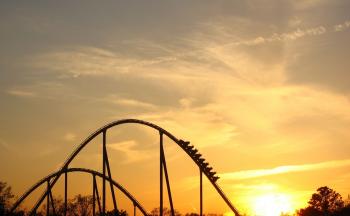Risk
Learn about the art of risk-taking. Your car is safe in your garage, but that's not what cars are for. Unless it's an investment vehicle.

"We made too many wrong mistakes." - Lawrence Peter "Yogi" Berra
Business and everything else in life isn't about avoiding risks. Certain risks are unavoidable. You cannot opt out of risk-taking.
Your concerns should be the administration of risks. This is certainly not something that could or should be summarized in a few paragraphs. It's an art.
While there might be right and correct ways of risk management, time will be, always and categorically, the final judge.
Risk is not binary. All too often, it's on a spectrum of good or bad, right or wrong, alive or dead, profit or loss, and this goes on and on. One, zero or in between. It's reductionistic thinking; methodology adapted to constrained brains. Risk isn't binary. Which is why analytics of traditional risk/benefit analysis fails. It's a lamentable practice polluted with deficient methods.
Models as a Weapon
Reality does not conform to any model. This is why we must make our models accustomed to the world. Nonsensical model-fitting is a futile revolt against the world; it's absurd and doomed to fail. Unless one deploys serious manipulation tactics, but these are exception cases: models used as political tools, or MaaWs (Models as a Weapon).
Perception of risk is different from real risk. But percieved risk in itself is very real, as the mind itself does posess certain manifestation properties.
Frameworks for perfectly assessing risk does exist. Estimates cannot be trusted. The apparatus that produces certain insight into the future does not exist. Predictive certainty is impossible. The universe is erratic (gullible souls and misguided scientists might disagree).
Risk is a Teacher
Take risks, learn from risks.
Some might be inclined to believe that risk assesment should be performed as an act of reason, by implementing the tools of science and technological innovation, overthink and making it an act of brute force cognition.
Yet, when dealing with risks of any kind, perhaps nothing is as important as wisdom and experience, things gained from living a life, learning from mistakes, proper (not fake) education. More than anything, risk is a teacher.
By taking risks one will learn about taking risks. It's a loop.
The one thing to avoid is ruinous risk of any kind. Easier said than done, but if you don't, you will, by definition risk everything. That's always a bad bet. Evade any risk which may result in disastrous consequences.
How do you know, which risks should you avoid at all cost? Again, wisdom and experience is your guide. If you're lacking in those, learn from the mistakes of other people; learn from history, but be careful, your conclusions might be off; history might not even rhyme and future events may be nothing like you've expected. Finally, learn from nature, your endless source of inspiration with its built-in wisdom, it has got billions of years of "experience".



